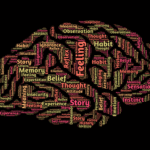Soulful
What makes us human is the immaterial and the way in which it influences our material world. The concept of a soul is not new, but perhaps it is time for a new look into how it defines our identity and what part our understanding of the soul plays into our spiritual journey.
Being human means sharing a universal trait that ties us all together— having a soul. The definition of soul varies amongst cultures throughout history, but let’s take a look at what we think it means.
The soul is the overarching relationship of the mind and body. The body houses the mind, but the mind gives the body its essence. Together, we have a soul. Understanding this relationship is important to understanding how the mind affects the body and how the body affects the mind.
Body and Mind
The body is our physical form and therefore more accessible to observation. But what have we observed? That the mind can influence the body in a myriad of ways. Having mental health conditions such as depression can lead to heart disease and obesity. On the other hand, improving your mindset can lead to a reduction in stress and a more restful sleep cycle. For more information on our mind and how it can determine our reality, click here: (Mind Article)
Just as the mind can affect the body, so too can the body affect the mind. Physical practices such as meditation and breathing exercises can help with anxiety, depression, and post-traumatic stress disorder. To read more about our body’s relationship with our mental health, click here: (Body Article)
Understanding the intimate relationship between the mental and the physical leads us to our definition of a soul. Despite our belief system, religious background, or cultural upbringing, we can look at the soul as our human infrastructure. For as important as our mental health is, so too is our physical health. For as powerful as our bodies can become, so too can our minds. Maintaining both and allowing the mind and body to work in tandem creates the most self-actualized version of yourself.





